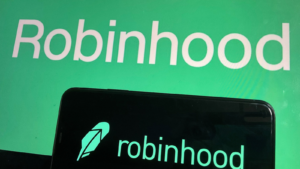The companies discussed below offer a potent combination of factors that should interest investors. The majority of those shares are priced between $10 to $20, suggesting relative stability. All of these companies are tech oriented in nature and have the ability to grow quickly. They should also fare positively in 2024 as the Fed enacts rate cuts that tend to favor growth firms in general.
Robinhood (HOOD)

Robinhood (NASDAQ:HOOD) is a relatively well known financial services platform that allows investment in multiple asset classes. The platform and the stock representing it became famous during the pandemic as meme stocks and cryptocurrency began to take hold. The company quickly became a favorite among the traders allowing its stock to grow during the process.
As much as that is a positive thing, it also comes with some downside. Robinhood traditionally depends primarily on trading revenue. However, trading revenue is relatively unstable and sensitive to market shifts. So, when investors were flush with cash during the pandemic due to stimulus checks, Robin Hood’s business was stronger. Yet, those same trading revenues have become less dependable as inflation has dominated the current markets.
That leads me to my next point. One of the primary reasons to invest in Robinhood is that the company recently announced that it is launching a credit card. The company is actively moving to lessen its dependence on trading revenues. The move should bring stability to the firm, which is doing well otherwise.
Grab (GRAB)

Grab (NASDAQ:GRAB) is a ride-hailing platform/super app that has long intrigued investors. However, the stock has also disappointed, despite strong interest.
Investors have long been intrigued by its dedicated exposure to the fast-growing southeast Asia market it serves. That region is home to important middle economies that investors would be wise to understand in the coming years. Despite all of the interest in those economies, Grab has not been able to produce satisfactory results.
That was, until recently.
When Grab announced its 4th quarter earnings in early February the company also posted its first profitable quarter ever. Revenues were approximately $20 million higher than anticipated. All-in-all, it was very good news. That’s especially true given that the company posted a $391 million loss during the same period a year earlier.
The strong results allowed the company to initiate a stock buyback valued $500 million. Shares currently trade near $3 and benefit from strong prospects moving forward.
DLocal (DLO)

DLocal (NASDAQ:DLO) is a Uruguayan firm operating a global payment processing platform. Generally, fintech stocks are well regarded at the moment. Investors recognize that legacy payment systems are in need of updating. The result is that the fintech market is poised to continue growing for years to come.
However, DLocal isn’t just another choice among many in the fintech landscape. Instead, the company is a strong performer with recent results that should catch the eye of investors everywhere. During 2023, payment volume increased by 67% while revenues rose by 55%.
DLocal is also particularly attractive based on its revenue retention rates. Those rates generally hover around 150%. They measure the ability of a firm to expand its relationship with a given customer. That 150% figure indicates that the company derives 50% more revenues from a given company contracted with it. There’s definitely a lot to like when it comes to DLO stock.
On the date of publication, Alex Sirois did not have (either directly or indirectly) any positions in the securities mentioned in this article. The opinions expressed in this article are those of the writer, subject to the InvestorPlace.com Publishing Guidelines.
Alex Sirois is a freelance contributor to InvestorPlace whose personal stock investing style is focused on long-term, buy-and-hold, wealth-building stock picks. Having worked in several industries from e-commerce to translation to education and utilizing his MBA from George Washington University, he brings a diverse set of skills through which he filters his writing.
